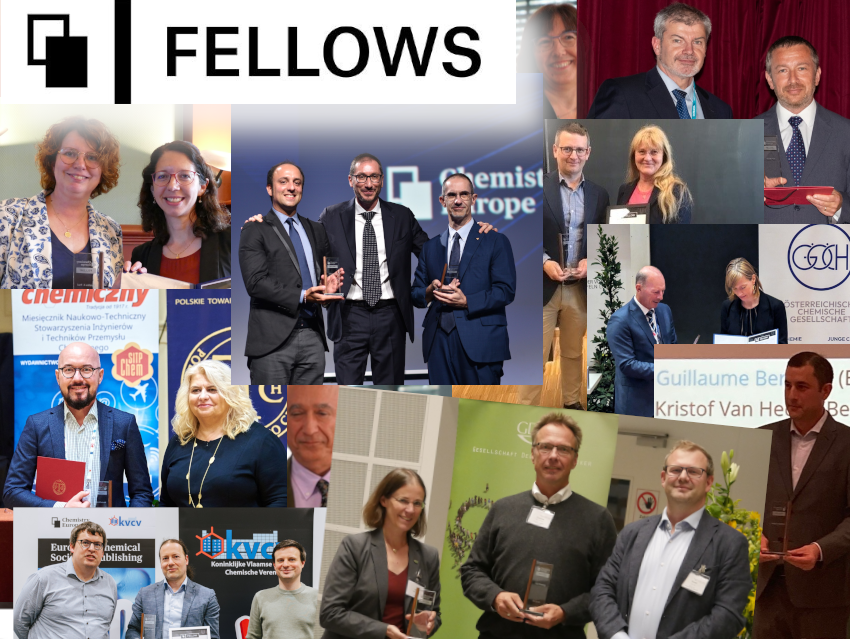The Chemistry Europe Fellows Class 2022/23 were honored and featured throughout the year on various occasions by Chemistry Europe and their national member societies. However, before the nomination phase for the next class begins in April, let’s again take a closer look at those recognized in 2024 for their exceptional contributions to Chemistry Europe.
Since 2015, the Fellows program has honored outstanding members of the Chemistry Europe societies biannually, celebrating individuals whose impactful work advances chemistry and strengthens the community. A complete list of all 150 Chemistry Europe Fellows and the eight Honorary Fellows can be found here: chemistryviews.org/fellows/
A European Endeavor
Supporting Scientists
Founded in 1995, Chemistry Europe is an association of 16 chemical societies from 15 European countries. It publishes a wide range of high-quality chemistry journals and ChemistryViews, its digital science magazine, and supports scientists at every career stage. It values integrity, openness, diversity, cooperation, and freedom of thought.
In addition to the Fellows program, Chemistry Europe awards the prestigious €10,000 Chemistry Europe Award, sponsors conferences, offers travel grants for early-career researchers, hosts early-career researcher meetings, organizes free virtual symposia with leading scientists, and much more.
Frederico Bello, Politecnico di Torino, Italy, and Chemistry Europe Fellow Class 2022/23, told La Chimica El‘Industria, the membership magazine of the Società Chimica Italiana (SCI): “Giving opportunities to young people is certainly one of the peculiarities that I appreciate about Chemistry Europe.”
Frederico Bello remembers his first experience with Chemistry Europe during his Ph.D. in 2014. One of his early articles was featured as the front cover of the then newly launched journal ChemElectroChem. At an international conference sponsored by Chemistry Europe, he was thrilled to see participants holding copies of the journal with his work on the front page! [1]
Moving Beyond National Boundaries
What Chemistry Europe is today all began with the vision of creating a shared pan-European journal. To achieve this, each society merged its own long-standing national journal, giving rise to the European Journal of Inorganic Chemistry and the European Journal of Organic Chemistry.
Alessandro Abbotto, Università di Milano-Bicocca, Italy, and Chemistry Europe Fellow Class 2022/23, recalls that “the Gazzetta Chimica Italiana was a cornerstone for Italian chemists until the 1990s and a key part of Italian chemistry’s history, founded by the visionary Italian chemist Stanislao Cannizzaro. Its legacy continued when it merged with other European journals to form the European Journal of Organic Chemistry (EurJOC) and the European Journal of Inorganic Chemistry (EurJIC), combining its prestige with that of other leading European journals to shape European chemistry”. [1]
Miguel Ángel Sierra from the Complutense University of Madrid, Spain, and Chemistry Europe Fellow Class 2022/23 stated, “I saw Chemistry Europe as a brilliant idea, uniting European chemical societies in a common project. It was a milestone in our history and a true turning point for strengthening collaboration between countries.” [7]
Right from the start, what is now Chemistry Europe integrated different traditions of scientific communities and perspectives from different European countries and chemical societies and created a collective platform where a variety of voices contribute to the progress of chemistry. Moving beyond national boundaries, it provides a unified, equal platform for publications from Europe and the world. Income from the journals enables the chemical societies to carry out their diverse tasks. “In contrast to previous generations, many milestones have disappeared and today we navigate the vast world of scientific publications mainly by metrics that do not always reflect quality criteria.” Alessandro Abbotto says [1].
All of this is and was only possible thanks to the many, many chemists across Europe and the world who support Chemistry Europe. A big thank you to everyone involved, and especially to the Chemistry Europe Fellows, who have gone above and beyond with their support! Past Chemistry Europe Fellows include Nobel Laureates Ben Feringa (Netherlands), Jean-Marie Lehn (France), and Sir Fraser Stoddart (USA), as well as many other remarkable individuals. We are, of course, especially proud of this, but everyone is welcome, and anyone can make a valuable contribution to this European collaborative project. Feel free to reach out to us if you’d like to learn more.
Chemistry Europe Fellows Class 2022/23
The 2022/23 Class of Fellows consists of 22 exceptional individuals, selected for their outstanding contributions to Chemistry Europe [2]. Their achievements include excellence in research, support for publications or other Chemistry Europe projects, creativity, and innovation, reflecting the diverse and exceptional talent within Chemistry Europe.
The Chemistry Europe Fellows are awarded a certificate and a trophy by their respective national societies, and many national membership magazines feature interviews or articles about their national Fellows [1,3,4,6,7]. It is also a tradition to honor all Fellows together at a reception during the EuChemS Conference. In 2024, the reception was held in Dublin, Ireland, near the conference venue at the EPIC Museum, a museum dedicated to immigration, with approximately 60 invited guests. [5]
Award Ceremonies for Chemistry Europe Fellows in 2024
In June, the Swedish Chemistry Society (Svenska Kemisamfundet (SK)) presented the Chemistry Europe Fellow award to Daniel Brandell at an event at Uppsala University, hosted by Helena Grennberg, Chair of the SK [3].
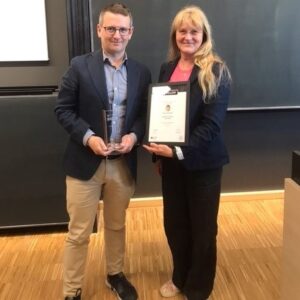
Figure 1. Chemistry Europe Fellow Daniel Brandell, Uppsala University, Sweden, and Helena Grennberg, Chair of the Svenska Kemisamfundet (SK).
Caroline Paul, the Chemistry Europe Fellow for 2022/23 from TU Delft, was also awarded the Koninklijke Nederlandse Chemische Vereniging (KNCV) Gold Medal in 2024 at a ceremony held in June in Groningen, the Netherlands.
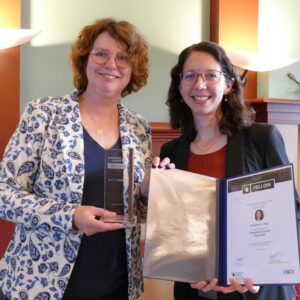
Figure 2. Chemistry Europe Fellow Caroline E. Paul (right) and KNCV President Yvonne van der Meer (left).
In August, Radek Pohl, Czech Academy of Sciences, Prague, was honored as a Chemistry Europe Fellow at the 76th Congress of Chemists in Ostrava, Czech Republic, with the President of the Czech Chemical Society (ČSCH), Tomáš Navrátil, presenting the award.
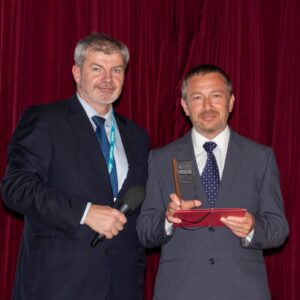
Figure 3. Chemistry Europe Fellow Radek Pohl (right) and Česká společnost chemickáá (ČSCH) President Tomáš Navrátil (left).
In August, the Società Chimica Italiana (Italian Chemical Society, SCI) awarded its Fellows, Alessandro Abbotto from Università di Milano-Bicocca and Federico Bella from Politecnico di Torino, during the Opening Ceremony of their 28th National Conference which was held at the Allianz MiCo – Milano Convention Centre.

Figure 4. Chemistry Europe Fellows Alessandro Abbotto (right) and Frederico Bella (left) with SCI President Gianluca Farionola (middle).
The award for Chemistry Europe Fellow Marcin Górecki, Polish Academy of Sciences (IOC PAS), was presented at the Polish Chemical Society’s (PCS) Annual Scientific Congress in September in Poznań, Poland. The ceremony took place in the Auditorium of the Adam Mickiewicz University in Poznań, a historic neo-Renaissance building built over a century ago.
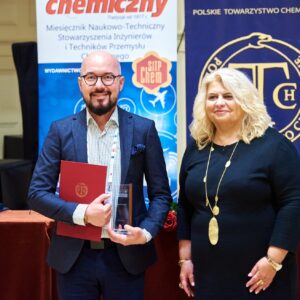
Figure 5. Chemistry Europe Fellow Marcin Górecki and PCS President Izabela Nowak.
The Chemistry Europe Fellows from Germany, Stefanie Dehnen, Karlsruhe Institute of Technology (KIT), and Ingo Krossing, Universität Freiburg, received their certificates and trophies at the GDCh Conference on Inorganic Chemistry of the Divisions of Solid-state Chemistry & Materials Research and Wöhler Association for Inorganic Chemistry in Munich in September 2024.
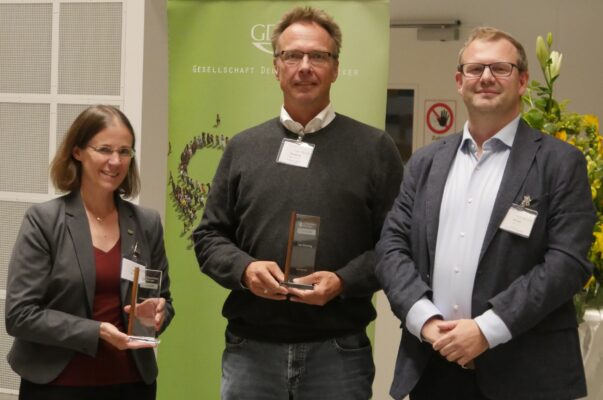
Figure 6. Chemistry Europe Fellows Stefanie Dehnen and Ingo Krossing (middle) with GDCh Executive Director Tom Kinzel (right). (photo: © L. Bichlmaier & D. Dankert TUM)
In September, Maren Podewitz, TU Wien, received the Chemistry Europe Fellow certificate and trophy from the Austrian Chemical Society (GÖCH) at Chemietage 2024 in Graz, Austria.
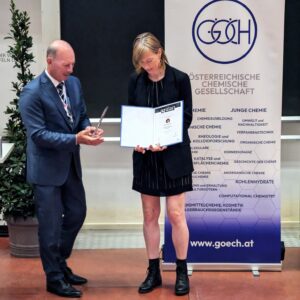
Figure 7. Chemistry Europe Fellow Maren Podewitz and GÖCH President Peter Gärtner.
In October, the award ceremony for the Société Royale de Chimie (SRC) laureate Guillaume Berionni, University of Namur, Belgium, took place during the SRC Annual Scientific Day in Mons, Belgium. The award was presented by SRC President Anne-Sophie Duwez.
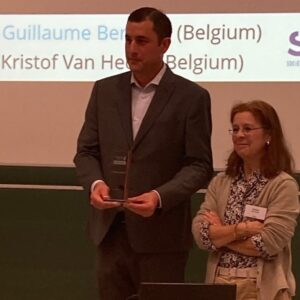
Figure 8. Chemistry Europe Fellow Guillaume Berionni and Société Royale de Chimie (SRC) President Anne-Sophie Duwez.
The 2024 Awards and Distinctions Ceremony of the Real Sociedad Española de Química (RSEQ) was held in November at the University of Extremadura, Badajoz, Spain. The ceremony included the presentation of the Chemistry Europe Fellows 2022/2023, with Concepción Gimeno Floría, ISQCH (CSIC-University of Zaragoza), and Miguel Ángel Sierra, Complutense University of Madrid, being recognized [4,6,7]. You can watch the ceremony on YouTube [6].
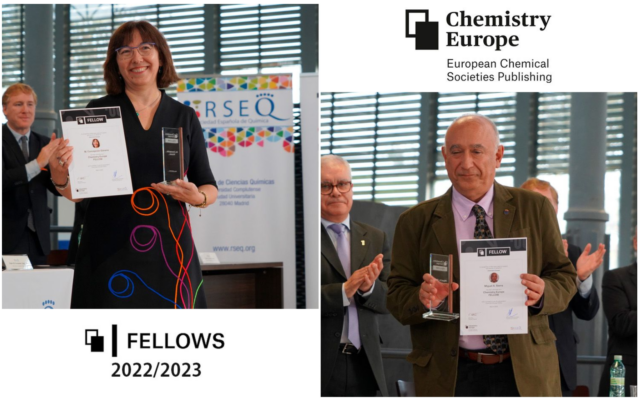
Figure 9. Real Sociedad Española de Química (RSEQ) Chemistry Europe Fellows Concepción Gimeno Floría and Miguel Ángel Sierra.
The Koninklijke Vlaamse Chemische Vereniging (KVCV) Fellow, Kristof Van Hecke, Ghent University, Belgium, received his award at a KVCV event in December from Christophe De Bie, President KVCV and Universiteit Antwerpen, Belgium.
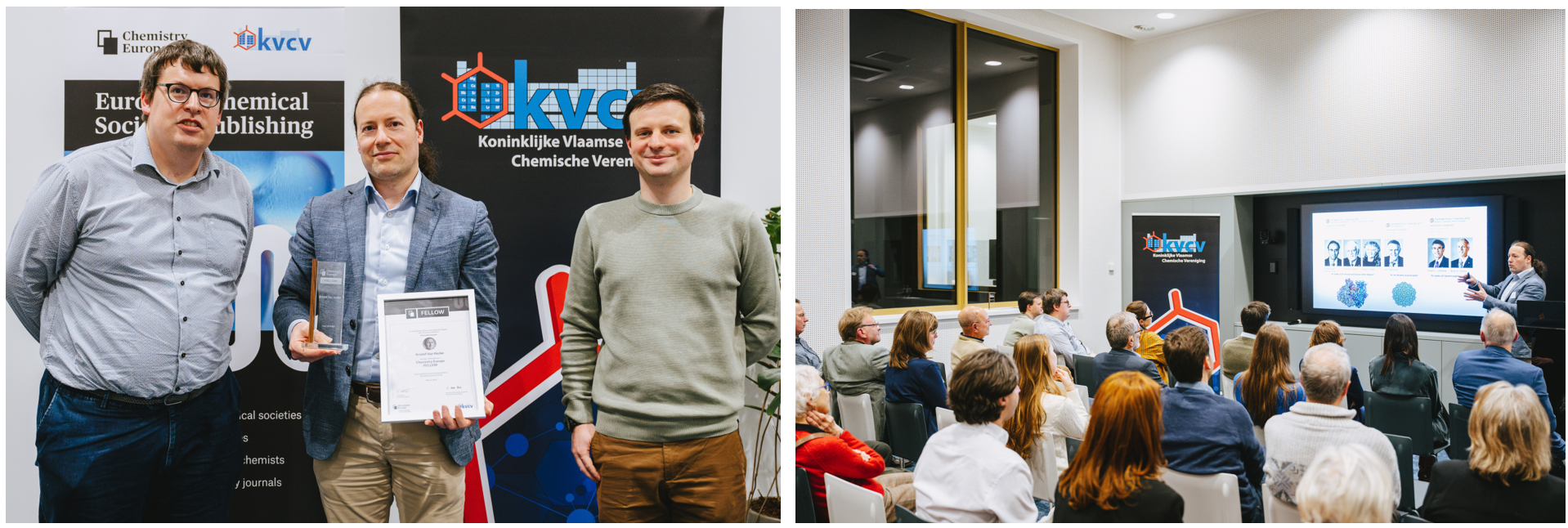
Figure 10. From left to right: President Koninklijke Vlaamse Chemische Vereniging (KVCV) Christophe De Bie, Chemistry Europe Fellow Kristof Van Hecke, and EuChemS/EYCN Delegate of KVCV Thomas Vranken (photos: © Lawrence Schoonbroodt)
Chemistry Europe Reception in Dublin
As mentioned above, the Chemistry Europe Fellows Reception to honor all Fellows took place in Dublin alongside the EuChemS Conference with about 60 invited guests [5].
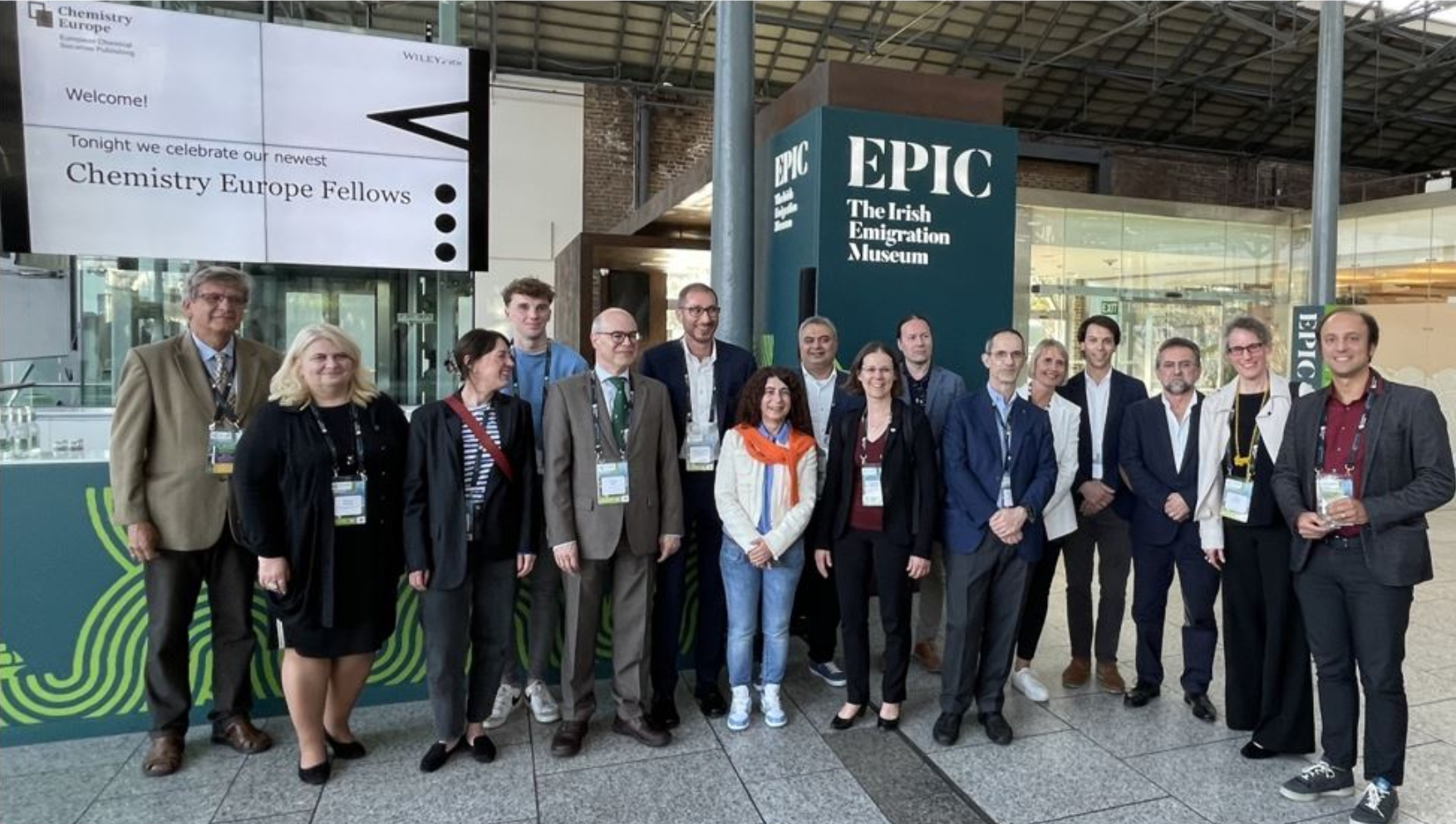
Figure 11. Chemistry Europe Fellows (names bold) and Chemistry Europe Representatives at the Reception. (Photo © Drew Gwilliams)
From left: Péter G. Szalay, Professor at Eötvös Loránd University, Budapest, Hungary, Izabela Nowak, Professor at Adam Mickiewicz University (AMU), Poznań, Poland, Anne Nijs, European Journal of Organic Chemistry/ChemistryEurope, Aaron McCormack, Chairperson ICI Young Chemists’ Network (YCN), Ireland, Haymo Ross, Chemistry – A European Journal, Gianluca Maria Farinola, Università degli Studi di Bari Aldo Moro in Bari, Italy, Josefa Fernandez, Head of Executive Office, Chemistry Europe, Christoforos Kokotos, University of Athens, Greece, Stefanie Dehnen, Professor at KIT, Germany, Kristof Van Hecke, Professor at Ghent University, Belgium, Alessandro Abbotto, Professor at Università di Milano-Bicocca, Italy, Sonja Kwiatkowskyj, Chemistry Europe Marketing Manager, João Borges, University of Aveiro, Portugal, Joaquim Faria, Universidade do Porto, Portugal, Vera Koester, ChemistryViews, Federico Bella, Politecnico di Torino, Italy.
“The Chemistry Europe Fellows Class of 2022/2023 reflects the breadth of knowledge, impact, and invaluable contributions of early-career and senior scientists in advancing chemistry knowledge and strengthening the chemistry community”, João Borges, University of Aveiro, Portugal, and Chemistry Europe Fellow Class 2022/2023, emphasized.
“The beautiful reception in Dublin, Ireland, was a unique opportunity to get to know more about and engage with each Fellow, learn about their diverse roles in supporting and impacting the chemistry community, and celebrate chemistry at large. I am proud to have been supporting and contributing to Chemistry Europe and ChemistryViews over the past decade”, João Borges continues. I also greatly value the many connections across countries and chemical fields, developing and exchanging ideas together, and collaborating to bring them to life.
Some snapshots of the Chemistry Europe Fellows reception in Dublin (Photos © Chemistry Europe).
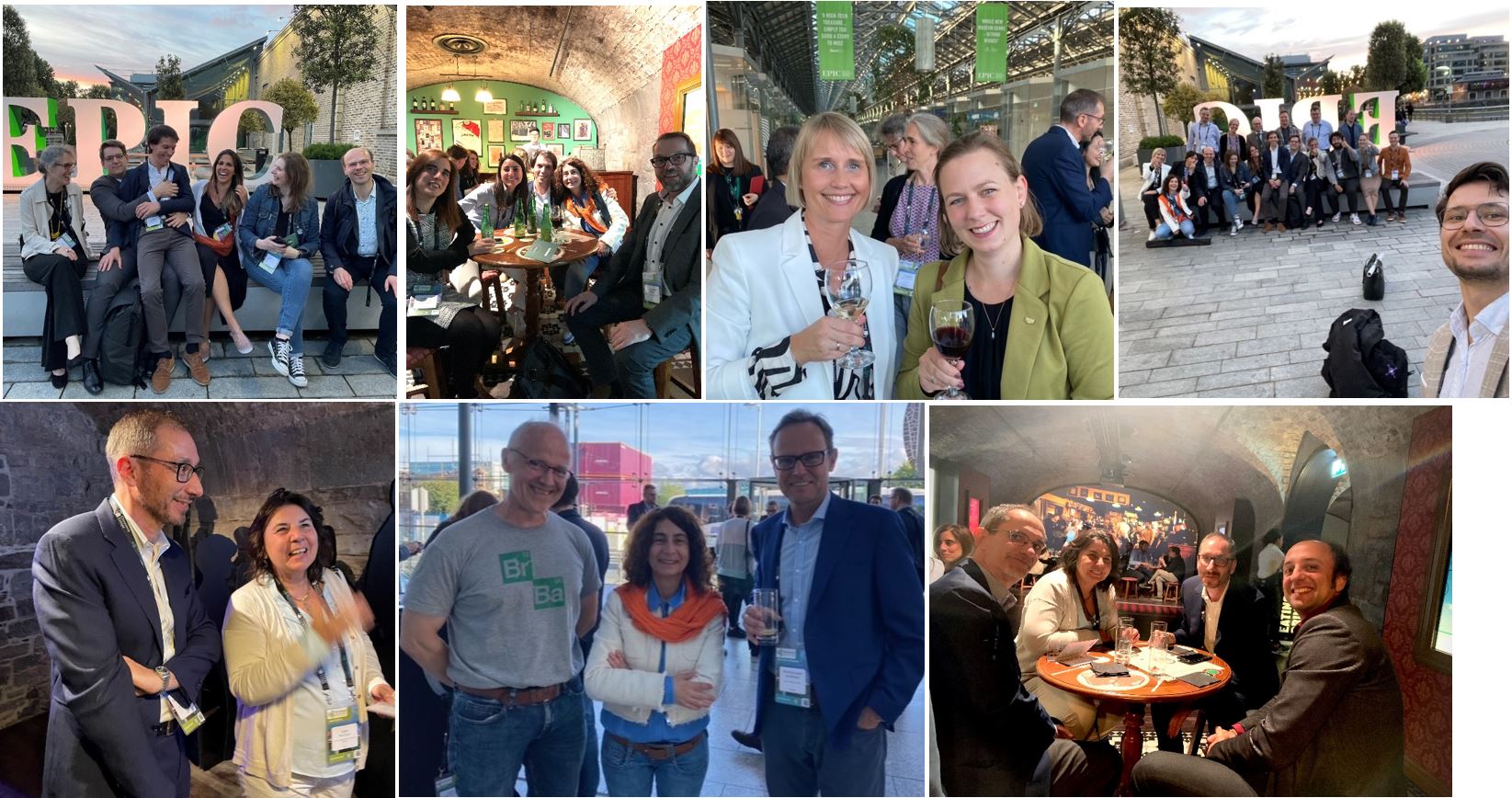
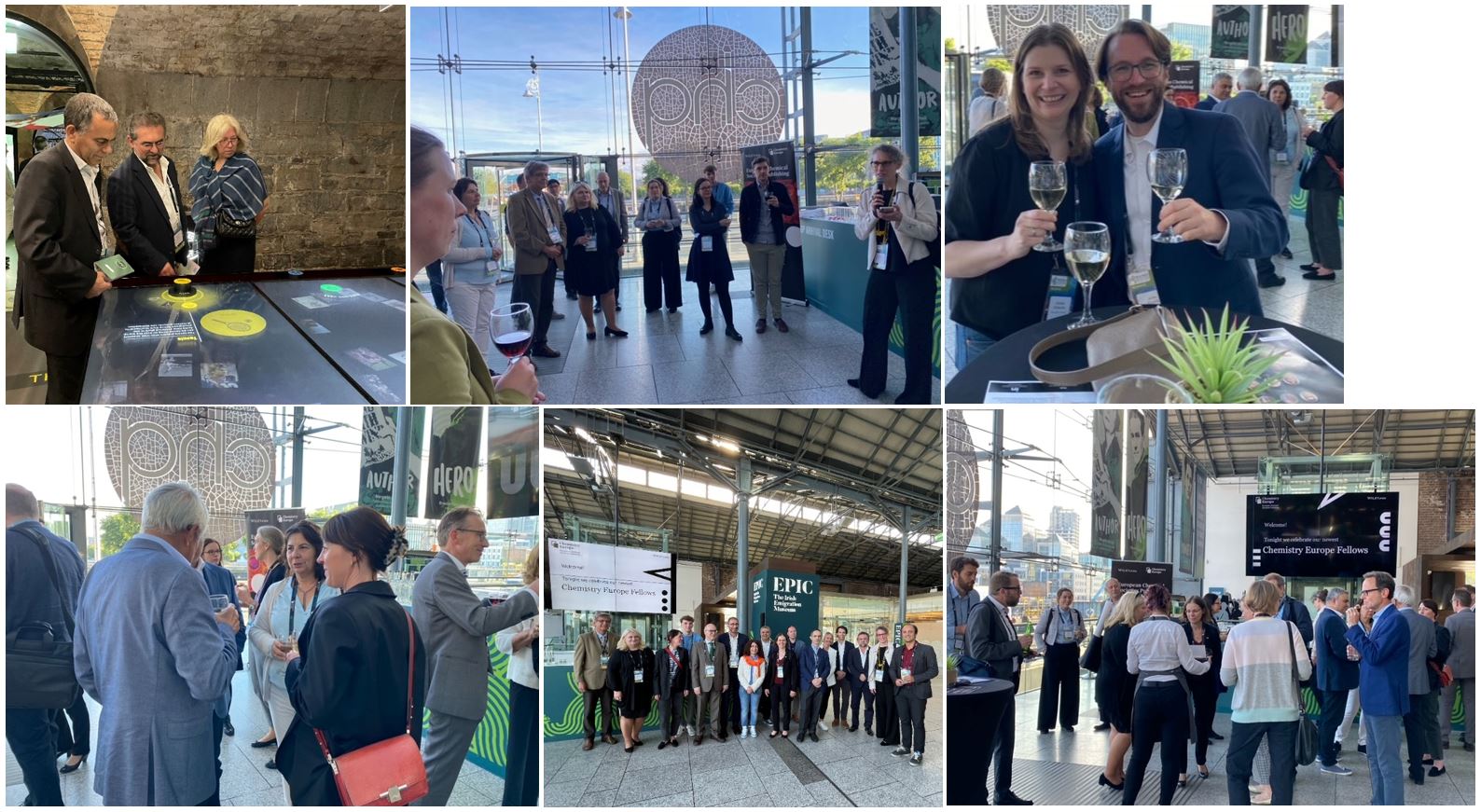
Last but not least, a list of Chemistry Europe Fellows not mentioned above, but also honored in 2024, includes:
- Pierre Braunstein, CNRS / Université de Strasbourg, France
- Maria Duca, Université Côte d’Azur – CNRS, France
- Emiel J. M. Hensen, University of Eindhoven, The Netherlands
- Eva Hevia, Bern University, Switzerland
- Maria João Ramos, University of Porto, Portugal
- Ivan Šalitroš, Slovak University of Technology Bratislava, Slovakia
- Rita Skoda-Földes, University of Pannonia, Veszprém, Hungary
- Georgios Vassilikogiannakis, University of Crete, Heraklion, Greece
A big thank you also on behalf of Chemistry Europe, and I look forward to new and continued collaboration!
References
[1] Anna Simonini, Nuovi Chemistry Europe Fellows, La Chimica El‘Industria 2024, VIII (3).
[2] News, Chemistry Europe Fellows 2022/2023, ChemistryViews March 11, 2024.
[3] Daniel Brandell tar emot Chemistry Europe-utmärkelse, Kemisamfundet June 5, 2024.
[4] Chemistry Europe Fellows 2022/23, An. Quím. RSEQ 2024, 120(1), 46. https://doi.org/10.62534/rseq.aq.1978
[5] Vera Koester, Highlights of ECC9: Europe’s Premier Chemistry Congress in Dublin 2024, ChemistryViews 2024. https://doi.org/10.1002/chemv.202400070
[6] RSEQ: Ceremonia de entrega de premios y distinciones 2024, YouTube 2024. (accessed January 13, 2024)
[7] Entrega de Premios y Distinciones de la RSEQ 2024, RSEQ Website 3 diciembre 2024. (accessed January 13, 2024)
Also of Interest
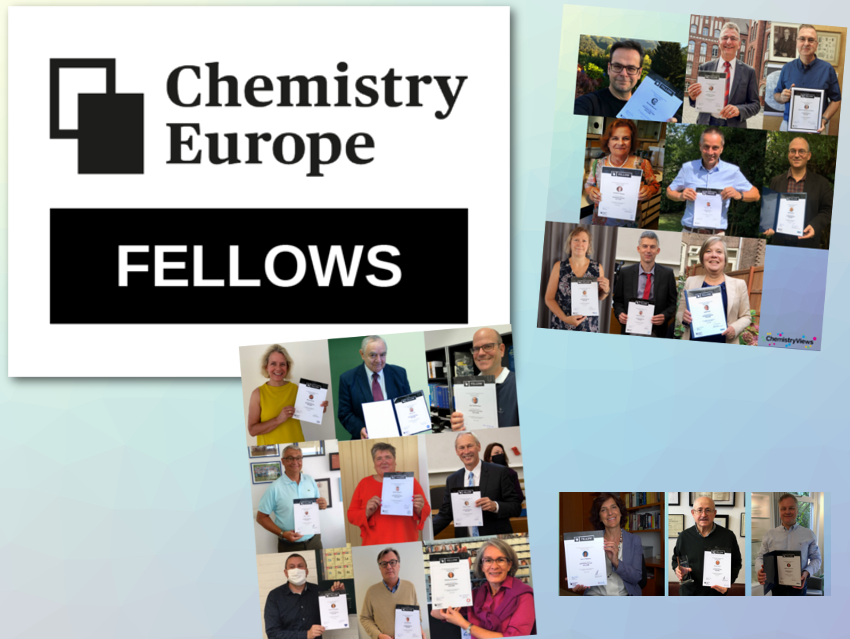
Commentary: A European Chemist, If Not A World Citizen
Chemistry Europe Fellows award ceremony during the Corona pandemic
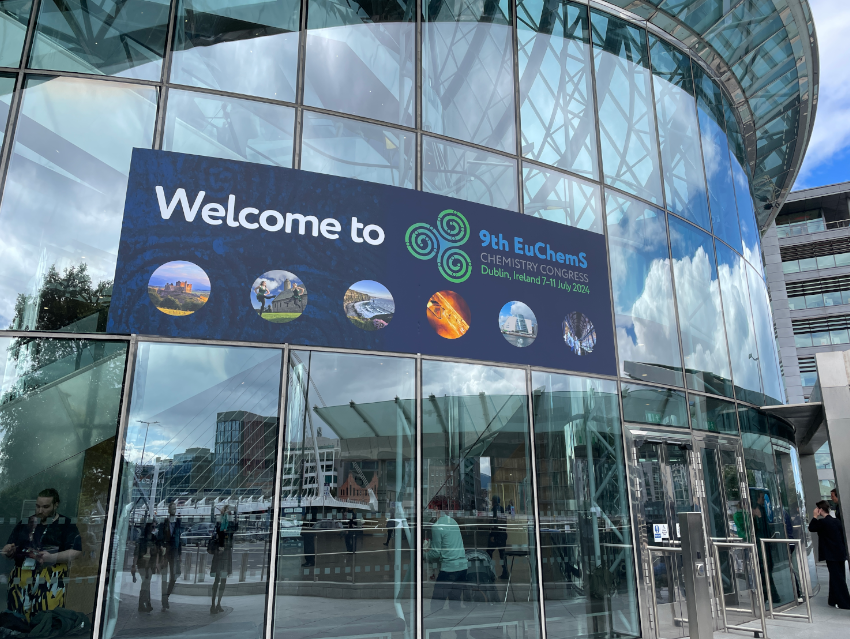
Spotlight: Highlights of ECC9: Europe’s Premier Chemistry Congress in Dublin 2024
Highlights and many photos from the 9th EuChemS Chemistry Congress (ECC9) reflect the assembly of chemists from Europe and internationally in Dublin, Ireland
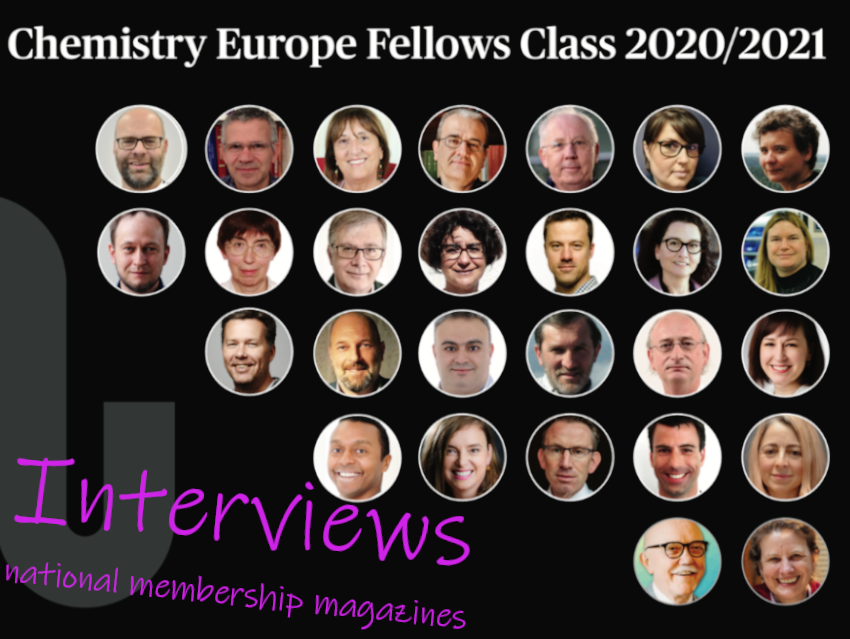
Spotlight: Interviews with the New Chemistry Europe Fellows
The membership magazines of the Chemistry Europe societies conducted interviews with the Fellows from their respective countries
